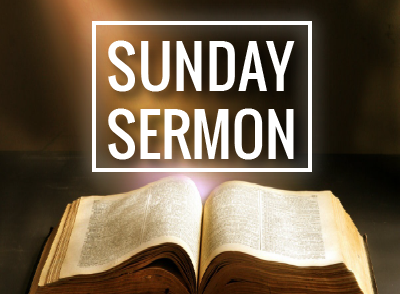Matthew 3:13-17
I enjoy passages of Scripture that have many different
directions that one can take. There is so much contained in these few short
passages that we heard this morning. Who is John the Baptist, and what is his
mission? What does the Baptism of John mean? Why is Jesus being baptized? And a
whole host of others. Well, I am not
going to answer any of those questions this morning.
This morning I would like us to look at God’s ability to
bring order out of chaos and to do that we need to read back through other stories
in Scripture.
The focus will be on the water. Keep in mind that for our
ancestors in faith, water was a pretty scary proposition. One could not breathe
underwater; water was where Leviathan lived, storms started on the water. So to
speak of Baptism as being immersed in the water, and using the image of dying
and rising was slightly off-putting to them.
But, there is no better place to start than “In the
Beginning” Genesis 1:1-5:
In the beginning, God created the heavens and the earth. Now the earth was formless and empty, darkness was over the surface of the deep, and the Spirit of God was hovering over the waters.
And God said, “Let there be light,” and there was light. God saw that the light was good, and he separated the light from the darkness. God called the light “day,” and the darkness he called “night.” And there was evening, and there was morning—the first day.
If you have even been involved in a building project, then
you know how chaotic it can be. All sorts of things going on at the same time.
Different trades in and out of the job site all doing their jobs and the
contractor is like the conductor of a symphony making sure it all happens at
precisely the same time. I am sure that during the creation of the known
universe, things were a little chaotic and we see that God, the Great General
Contractor all of history, sending his Spirit to hover over the waters.
Remember, water is a bad thing, and the Spirit was there to make sure the bad
stayed where it was supposed to stay.
We have the story of Noah and the Flood from Genesis
6:9-9:17;
Seven days from now, I will send rain on the earth for forty days and forty nights, and I will wipe from the face of the earth every living creature I have made.
God uses water to clean the earth of all that is wrong but
saves Noah and his family who escape destruction because of that same water.
The same water that destroys is the same water that saves. Remember that it
will come up again later.
But we also see a turning point here in the relationship
between God and humanity. Humanity had cut themselves off from that personal
relationship with God after the issue with the fruit in the Garden. I want to
take a little aside here to give you my theory on why Adam did what he did. You
see, I believe that Adam learned, very early on that his life would be much
better if he just did what his wife told him to do. I did not truly understand
this until I got married myself, anyway, back to our story.
The change comes in Genesis 8:21:
The Lord smelled the pleasing aroma and said in his heart: “Never again will I curse the ground because of humans, even though every inclination of the human heart is evil from childhood. And never again will I destroy all living creatures, as I have done.”
God makes a covenant promise to humanity that God will never
destroy humanity again. This is why I will never understand those who claim
that God sends weather incidents like hurricanes and floods as some retribution
for what people have done.
We next turn to Exodus 15 and the story of the Israelites
fleeing from their captivity in Egypt being pursued by the forces of Pharaoh.
You know the story; the Israelites are backed against the sea with no
possibility of escaping the oncoming Egyptian Army. Moses lifts his arms and
parts the Red Sea so they may cross.
The Lord is a warrior; the Lord is his name. Pharaoh’s chariots and his army he has hurled into the sea. The best of Pharaoh’s officers are drowned in the Red Sea. The deep waters have covered them; they sank to the depths like a stone. Your right hand, Lord, was majestic in power. Your right hand, Lord, shattered the enemy. Exodus 15:1-6
Here the water became their escape, and it became a tomb for
the enemies of people. Once again, we see that water is both salvation and
death.
And then we come to today’s Scripture and the Baptism of
Jesus. As I have mentioned before, Jesus left us with the example of a life to
follow, his way, his life, his truth. When we accept that Jesus is the Lord of
all, then we accept the change that comes with that. Baptism is that sign, we
die to our former life, and we rise to a new one. We are claimed, by God, at
our Baptism, whether it was as an infant or an adult. We recommit to that life
and that Jesus is the Lord of all, at our Confirmation or other public
declarations. Through Baptism, God makes
order out of the chaos of our lives and sets us on the path toward
righteousness.
In the service of Baptism we ask that the Holy Spirit
descend upon the waters, to hover if you will, to make order out of chaos. The
water of Baptism become, as the water has before, death and life, we die to
sin, and we rise to new life. It’s not that we do not sin any longer, it’s just
that we are now on a path towards that newness of life where we are no longer
slaves to sin but have redemption through Jesus Christ.
At our Baptism, promises were made by us or on our behalf
that we would reject sin and believe that we need the grace of God in our
lives. We pledged that we believe in God and Jesus Christ, and we promised to
resist oppression and evil and to show love and justice wherever possible.
Later in our lives, we would confirm those promises and beliefs at our
Confirmation and make a public declaration, in our own words, of our faith in
Jesus Christ as our Lord and Savior.
For many of us, our Baptism was a long time ago, and we
probably do not remember it. But we are called to renew those promises not only
through our Confirmation but every day. We are called to seek justice, to show
mercy, to love God, to love our neighbor, and to love our enemies. Let us live
as people called by God and who have been given God’s grace of forgiveness. Let
us renew those promises to, at this hour, and seek to follow the path of Jesus.









